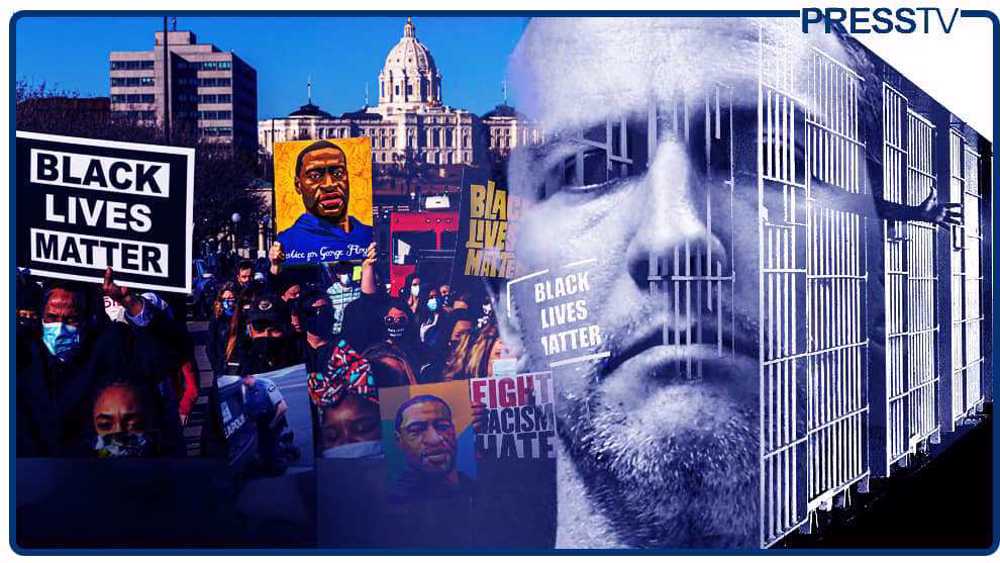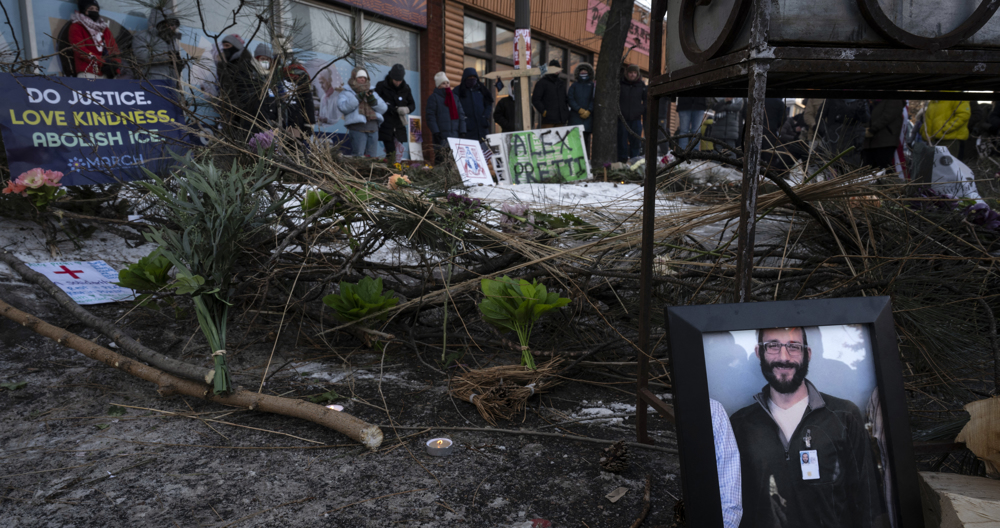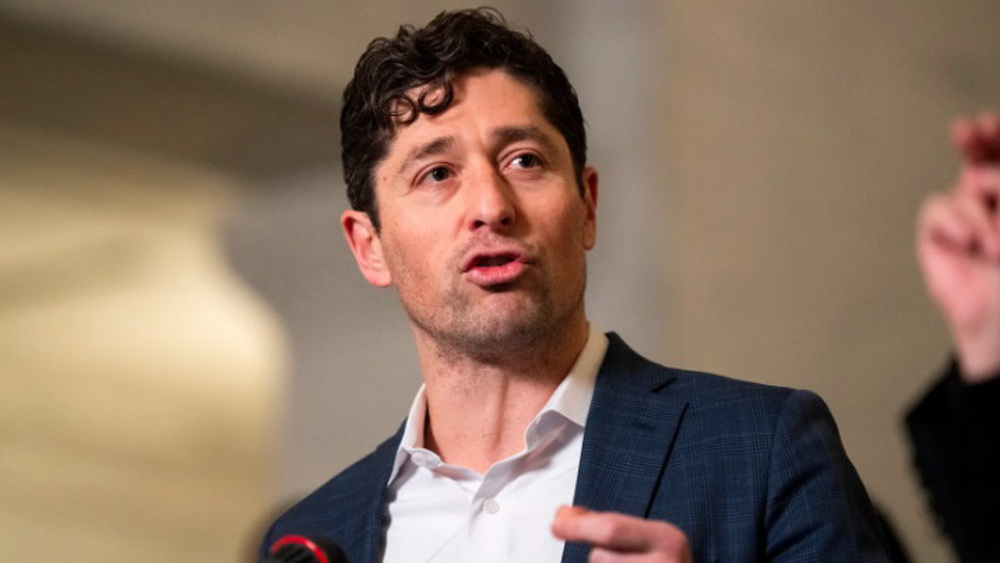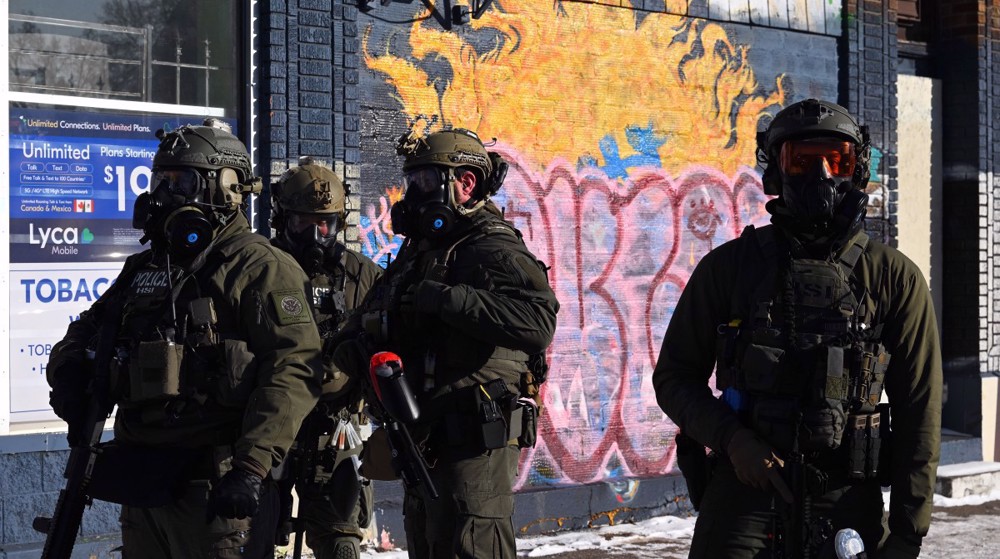Chauvin’s guilty, but the system is bigger than Chauvin and it must change
By Richard Sudan
Richard Sudan is a journalist, writer and TV reporter working for Press TV.
The news that Derek Chauvin, the Minneapolis police officer who knelt on the neck of George Floyd, leading to Floyd’s death, has been found guilty on all charges, has been welcomed by millions.
All across the United States, and also around the world, the manner in which former officer Chauvin took the life of Floyd, while staring brazenly and defiantly into the camera comfortable in the knowledge that he believed he could get away with murder, outraged almost everyone that saw it.
And the fact that Chauvin will now be held accountable for his actions, one would hope, would provide some measure of solace to the family of Floyd who are still grieving the loss of a loved one whose death sparked mass protests of indignation and fury around the globe.
Chauvin deserved this day of reckoning and to pay the price for his actions. Although it will take several weeks for the judge presiding over the case to announce the sentence for Chauvin, and although many feel Chauvin should have faced a charge of first-degree murder, the family of Floyd deserve nothing less than seeing Chauvin behind bars for the rest of his life.
But it is vital at this stage to remember that justice in one case, will not repair a broken system, which in many people’s view, is working as it was designed and intended to.
There is a mode of thinking, which persists and which suggests that the problem of unchecked police brutality and violence in the United States can be thought of in terms of a ‘few bad apples’, and therefore that dealing with rotten individuals within the police force, will fix things. While individuals who commit murder while wearing police uniforms must be held accountable, the idea that they are the exception to the rule is not true.
According to the FBI, the institutional corruption and the infiltration of law enforcement from those with white supremacist ideologies is a deep-seated and longstanding problem. The FBI staff have themselves, published several reports on the matter.
For those who understand the history of the United States, the scale and depth of the issue is simply the modern chapter of the continued legalised brutality against Black communities, beginning since the days of slavery and the inception of the country. The police of course, have their literal roots in slave catching gangs. That history has never been accounted for, and the legacy of it continues to this day with deadly consequences.
The entire US criminal justice system is riddled with people belonging to white supremacist organisations. We hear about the Proud Boys and Oath Keepers, but the reality is that there are countless groups, which have those leanings and affiliations.
Many believe that part of the reason the United States refuses to designate the Proud Boys as a terrorist group, despite their involvement in the Jan. 6 Washington riots, which was described as an act of domestic terror by the FBI, is because too many current serving police officers would be implicated. It isn’t a stretch to imagine this might be true, when one considers that the United States until only very recently, designated the Ku Klux Klan as a terror group.
The problem of police brutality and violence and the links to white supremacism is hundreds of years old. One officer like Chauvin facing a jail term will not change the entire system. But it might be a step in the right direction.
Each and every officer guilty of the kind of violence we saw from Chauvin must face the full force of the law, which of course they themselves are supposed to uphold. If Chauvin is given the sentence he deserves, his case must set a precedent, move forward and deter other officers from behaving like him. Police officers must be punished for racist killings and murdering with impunity. If they know they face the prospect of jail and will also lose their pensions, they will be deterred from carrying out such acts. It’s a question of power and money. The days of officers knowing that they automatically have the benefit of the doubt, no matter their behavior, must come to an end. The energy and momentum and public outcry over the case of Derek Chauvin, must now be directed towards all cases of police violence and injustice with lethal consequences.
Recently, much was made of the George Floyd Justice in Policing Act, which many hope will become law. But what is not being talked about so much is the fact that this measure would actually allocate the police hundreds of millions more dollars, in theory, to ensure that they improve policing methods and to bolster their budgets in this regard.
But, if the police are given more money while being entrusted to police themselves, the move could spell potential disaster.
New legislation might come into fruition. But if rules already exist, which the police are meant to follow, but they do not, what difference will new laws make? Again, to reiterate, the overarching problem is an issue of the abuse of power, which needs to be punished, because officers are already breaking the law when they unjustly kill with impunity. But rarely are they charged. And tragically, we have already seen a sobering reminder of the grim reality of things on the very day Chauvin was found guilty.
Approximately, half an hour before the verdict of Derek Chauvin was announced, news broke that a 16 year-old Black girl, a child, named as Ma’Khia Bryant, had been shot dead by a white police officer in Columbus, Ohio. Police say Bryant was carrying a knife when they arrived at the scene, which others say had actually been dropped moments before she was shot.
Bryant was believed to have been carrying the knife due to her involvement in a fight in which she was defending herself and is said to have called the police herself.
Critics are arguing that whatever had taken place, the officer firing several shots killing Bryant was excessive and reflective of a trigger happy stance, which police automatically have towards Black people compared to white people, and certainly not how they should have handled the situation. Many are commenting that there was no attempt by the police to de-escalate the situation, and that lethal force should have been a last resort. Tragically, it seems it wasn’t.
The facts are still being established. But if what we are hearing about this case is true, it serves as yet another reminder amid the backdrop of the Chauvin case of just how much work is yet to be done to change the state of affairs regarding violent policing in the United States.
Black people are not safe in the United States with the police operating as they currently do. There are countless cases of Black people actually calling the police for help, who then end up dead as a result.
Until we see a consistent trend developing of officers continually being charged and jailed, sending a clear and strong enough message to force a change in the culture of policing, the problem will persist. And where there might seem to be a veneer of change, where in fact there is none, things could even get worse.
The views expressed in this article do not necessarily reflect those of Press TV.
Discover Iran: Hormozgan’s coastal villages blend sea, culture and community tourism
Family of Minneapolis shooting victim reject US administration's ‘lies’ about killing
Stockholm protesters condemn Israeli attacks on Gaza despite ceasefire
VIDEO | Iraq's coordination framework picked Nouri al-Maliki as candidate for prime minister
French court jails pro-Palestine activist and mother over Gaza genocide speech
Gaza NGOs: 18,500 patients, wounded in urgent need of medical evacuation
VIDEO | Tehran appreciates Pakistan’s defense of Iran’s sovereignty at UN
VIDEO | US pressure or rights advocacy? Tunisia pushes back










 This makes it easy to access the Press TV website
This makes it easy to access the Press TV website